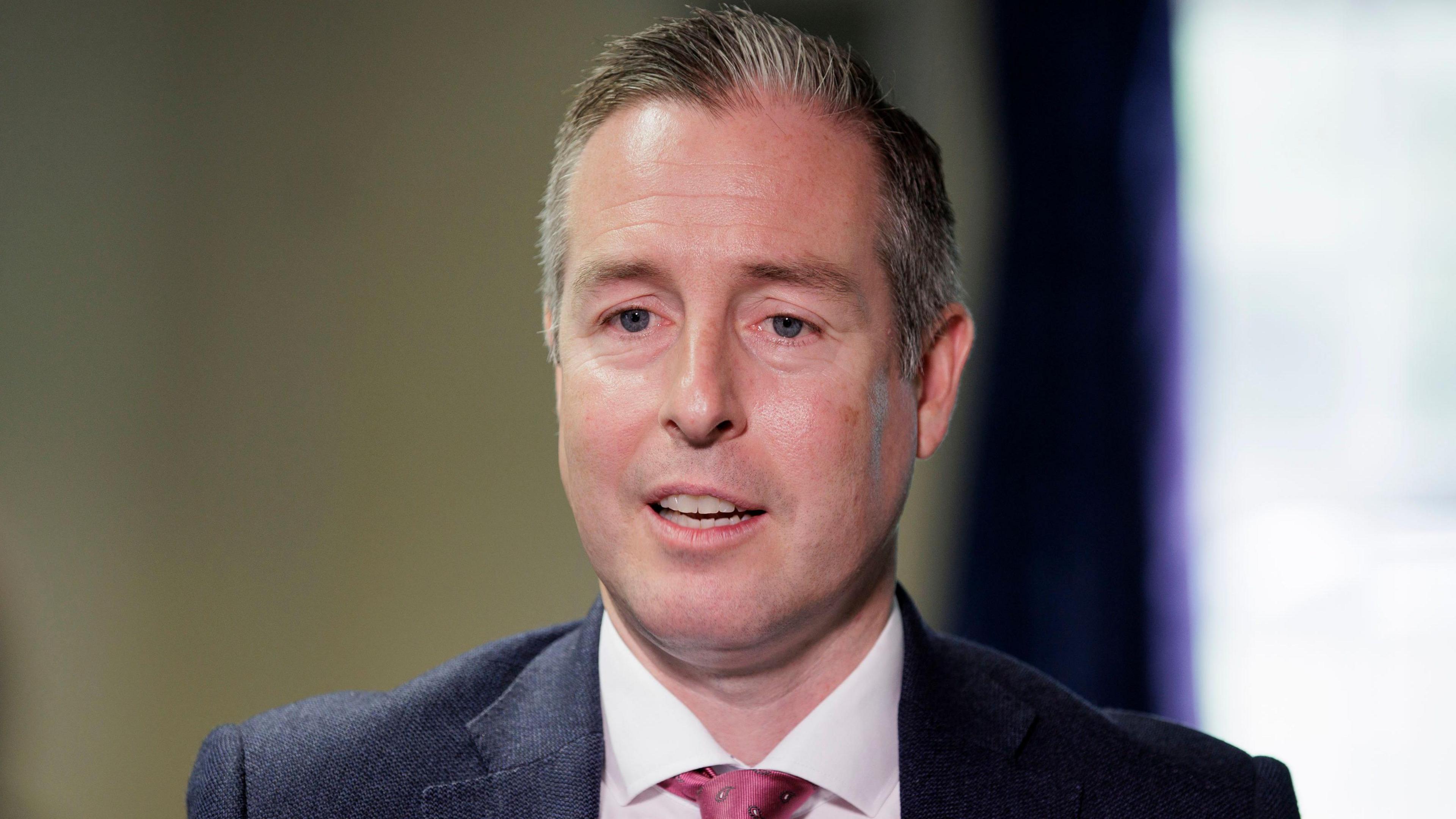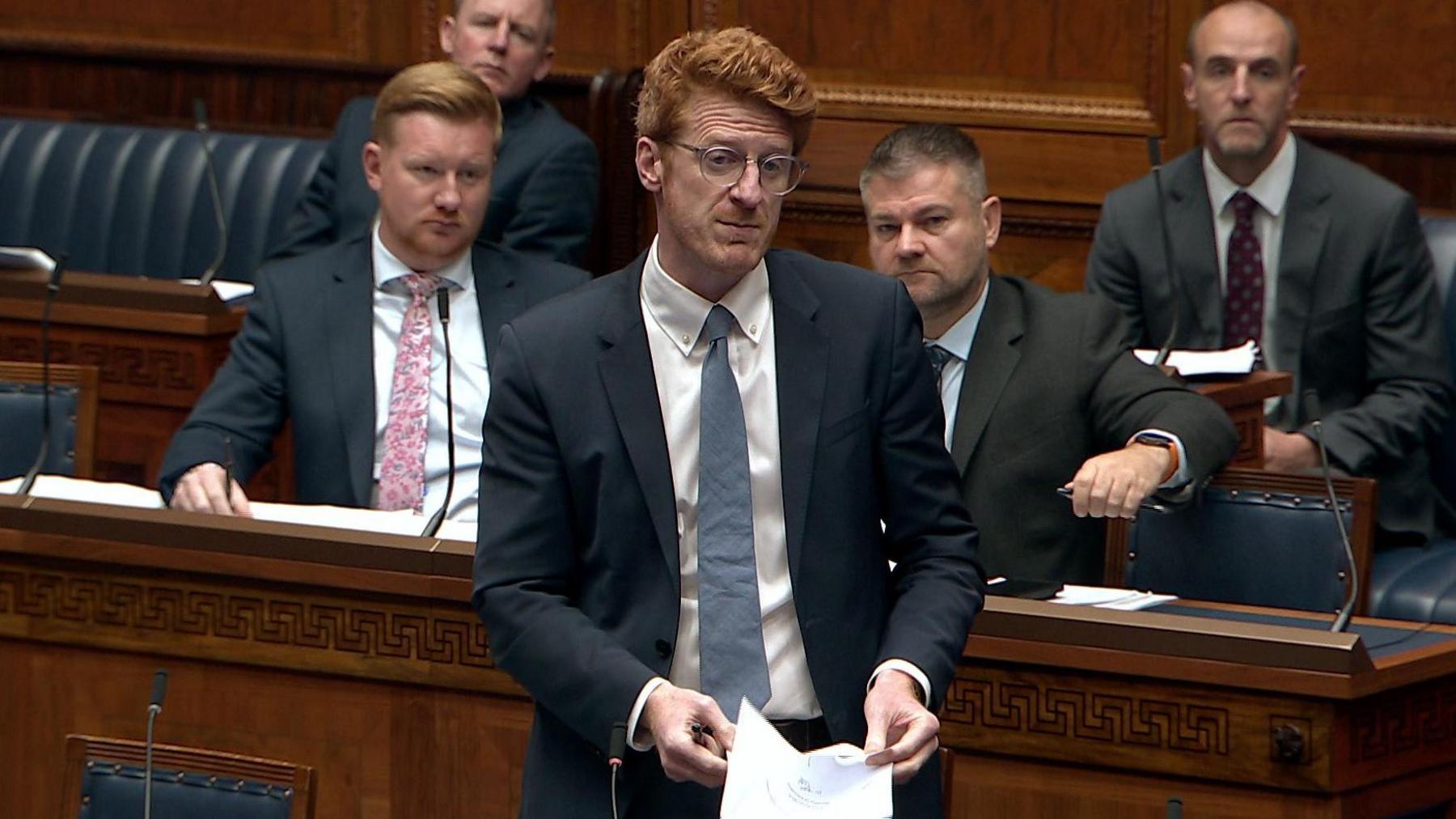Minister accused of using AI to write speech labels it a 'cheap shot'

Paul Givan denies using AI to help write a speech on SEN provision in Northern Ireland
- Published
Education Minister Paul Givan has clashed with opposition at the Northern Ireland Assembly over claims artificial intelligence (AI) was used to write an assembly speech.
He described it as a "cheap shot" after Matthew O'Toole asked him to confirm whether a "large proportion" of the minister's speech "was written by AI".
The minister, who was delivering a statement on special educational needs (SEN) provision, said it was an "utterly shameful" contribution by the opposition.
A Department of Education spokeswoman said Givan's speech "wasn't written by AI".
The pair clashed in the assembly as the Democratic Unionist Party (DUP) minister was speaking about his call for £1.7bn of ring-fenced SEN capital funding.
Givan told assembly members (MLAs) that he has written to colleagues in Northern Ireland's four-party devolved government seeking support for the plan.
AI claim 'utterly shameful'
O'Toole, an assembly member for the Social Democratic and Labour Party (SDLP) and leader of the opposition, said Givan was "outsourcing responsibility for the budget to other parties".
He added that "on the subject of outsourcing", parents and pupils were "grappling with the use of AI".
"I think it's fairly clear, and we've checked an online tool, that a large proportion of this speech was written by AI. Can you confirm that's the case?"

Matthew O'Toole put the claim to the education minister in the chamber on Tuesday
Givan, in response, said the question was "an example of a useless opposition".
He said he had come to the assembly chamber "to speak on behalf of the most vulnerable in our society" and their need for support.
"And the leader of the opposition, the alternative to this executive, fires a cheap shot around the use of artificial intelligence," he added.
The minister said it was an "utterly shameful" contribution and he was "not going to allow the member to detract from children with special educational needs".
A SDLP spokesperson said that there is a need to understand both the "positive potential and risks" in using AI.
"It is particularly important in the area of education, posing challenges and opportunities for both pupils and teachers," they added.
"We will be following up with further questions on AI usage and policy within the executive."
SEN provision 'one of the most pressing challenges'
Earlier, Givan said the "urgent requirement" for SEN provision was "one of the most pressing challenges facing our education system".
Last month, it was revealed that six SEN children in Northern Ireland had been left with no school place for September.
The Education Authority (EA) subsequently said they had found school places for those children, but that 80 children would not be able to start school as planned in September due to ongoing building work.
Givan said SEN capital projects needed "dedicated, earmarked funding" and warned that, otherwise, "educational inequality will deepen".
"Last week I wrote to ministerial colleagues to ask them to support detailed proposals for ring-fenced special educational needs capital funding of around £1.7bn, separate from the main education capital budget," he said.
"Today I appeal to members of this assembly to back me in this call."
Earlier this month, the EA said work on SEN provision for 2026-27 was well under way.
"Ongoing engagement with schools in areas of highest need for SEN provision is a priority for the EA every year," it said.
"We know at first hand the consequences of severe budgetary constraints on education – we see them every day."
- Published27 August

- Published15 September

- Published28 August

- Published8 September
